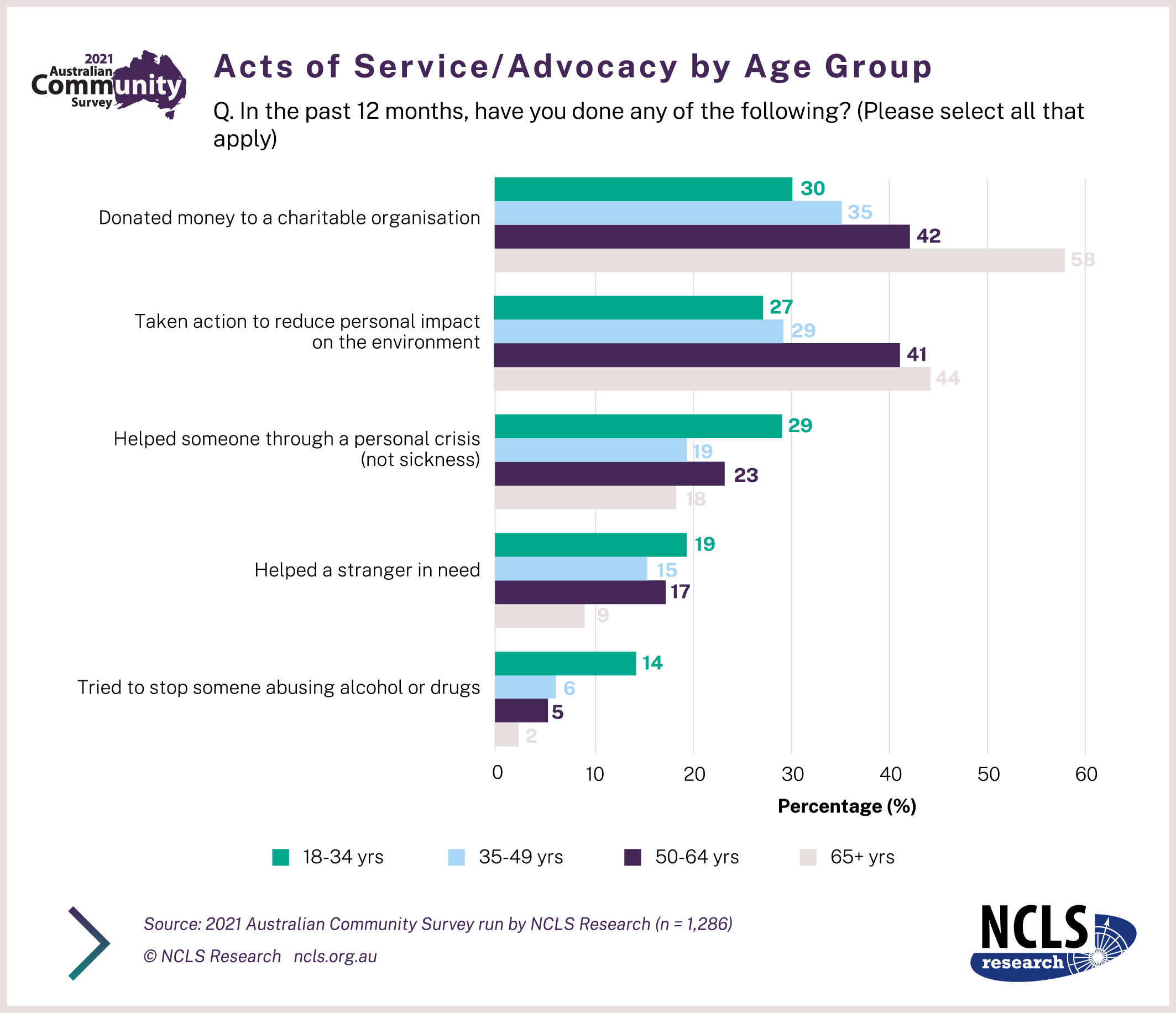Our research shows that Australians don’t just want to help others, their age influences the ways they choose to help.
The 2021 Australian Community Survey (2021 ACS) tells us a large number of Australians engaged in at least one activity that helped others in the previous 12 months. But when the data was analysed for different age groups, some surprising patterns appeared.
Age groups vary in ways they offer help and advocacy
In November, 2021, as part of the Australian Community Survey (2021 ACS) by NCLS Research, we provided a group of ordinary Australians with a list of 10 acts of service or advocacy. They were asked to note which activities (if any) they had engaged in, within the past year.
Three quarters (75%) of Aussies report helping another person in some way. However differences in types of action across age groups can be seen.
Younger Australians are more likely than older Australians to help people on a one-to-one personal level and older Australians are more likely to give money to charity or do things that support the environment.
Here’s what else we found:

Older Australians more active in donations and environment
The oldest age group (65+ year-olds) were most likely to donate money to a charitable organisation (58%). The youngest group (18 to 34 year-olds) were half as likely to do this (30%).
Older people were also more likely to act in a way that supports the environment than young people. More than 4 in 10 people aged 50 and over said they were likely to take action to reduce personal impact on the environment (41% of those aged 50-64 and 44% of those aged 65+) . Only 27 % of 18 to 34 year-olds had done this in the previous 12 months. This may be surprising as popular culture often portrays youth as having the greatest environmental concerns.
Younger Australians more active in personal support
People aged 18 to 34 years old seemed more likely to help others on a more person-to-person level.
Close to 14% of Australians in this younger age group say they had tried to stop someone abusing alcohol or drugs in the past 12 months. This is more than twice the percentage recorded for any other age group.
Almost 3 in 10 (29%) of these young adults report helping someone through a personal crisis, compared with 18% of those over 65 years.
Around 2 in 10 (18.6%) were likely to help a stranger they had encountered in a public place. This compares with 15-17% of those aged between 35 and 64 who had helped a stranger, and less than 10% of 65-year-olds who had done the same.
Willingness to help others exists in all age groups
While there are many factors that could influence these findings, such as level of disposable income, exposure to certain peer problems, and regard for personal safety, these results show a willingness of Australians of all ages to serve one another. The way in which they help is varied, yet altruistic generosity is seen in all ages.
For a country that has historically prided itself on giving “the battler” a “fair go”, these results are heartening. Australians–of all ages–are willing to help others.
Further information on the ways in which Australians help others is available in our article: Do Australians still help one another?



